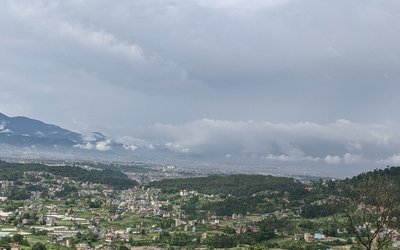The government has registered a bill at the Legislature-Parliament seeking to amend the constitution to address the concerns of Madhes-based parties. The amendment bill seeks to amend the constitutional provisions pertaining to citizenship, provincial border, and proportional representation, among others.
Federalism was introduced in the new constitution to build an inclusive nation by addressing longstanding grievances of the poor and oppressed people. Does this principle still hold true in the light of human face?
There is an issue here. How does keeping the hills and the plains, the caste and ethnic groups apart increase peace and harmony in the society? Based on the world experience, ethnic exclusiveness coupled with the absence of real democracy and good governance may escalate discontent in the country.
I am of the opinion that the demographic and geographical segregation should be avoided. The provinces with north-south line, comprising the mountains, hills and terai are best suited for Nepal from economic and security perspectives.
Federalism requires a complex web of institutional arrangements. Let me raise two critical issues here. First, we need to break centralization, which has been impediment to citizenry engagement to governance, and their access to government services and opportunities in the current unitary system.
In my view, the national government must be stronger than provincial governments and the local governments must not be subjected to the provincial governments in the spirit of devolved authority, downward accountability and inclusive development. The seven provinces should not be developed as another seven Kathmandus holding authority and finance. Self-governance should be exercised at the local government level, with local people holding local representatives accountable for their action or inaction. The public administration must be restructured along the line to empower local government for inclusive local development.
Next issue is political restructuring. There is a risk that federalism will not be successful in the current political culture. Federalism has been survived in the world where there are matured democracies with accountable governance.
In my view, political restructuring should proceed in parallel with state restructuring. There is a complex relationship between federalism and democratization. There must be political reform of the current political system in the areas of internal governance, inclusion and party financing. The political parties should be more strengthened with national character and devolved structure.
In the face of systemic corruption in the country, there must be transparency and integrity in political financing. There is urgent need that the government comes up with a mechanism to regulate and channel political financing at the federal, provincial and local levels.
Next issue is political instability, having 22 governments in the last 26 years. The unstable politics could be stabilized by the use of higher percent threshold, perhaps 10%, to ensure political stability at federal and provincial parliaments. In the short run, smaller political parties may find it very challenging, but in the long run, the country will benefit with stable policies and actions on national development priorities.
There are number of other issues. However, local people making local decisions and solving local problems at the local level is the heart of federalism. We must bring human face to federalism while addressing excessive centralization and political instability together for the success of federalism in Nepal. There is an opportunity to make federalism work if the political parties have Will and Capacity to do so.
Dr. Prabin Manandhar is an expert of international development. Currently, he is working as Country Director of The Lutheran World Federation. He is the Chair of the Association of International NGOs in Nepal (AIN). He is also a visiting faculty at the Kathmandu University. He can be reached at prabin.manandhar11@gmail.com
- Reclaiming Nepal’s Budget From Hidden Hands
- Jun 07, 2025
- Redefining Regional Cooperation: How SAARC can evolve like ASEAN
- May 11, 2025
- From Nepal to Myanmar: Navigating Earthquake Response Lessons
- Apr 13, 2025
- World Humanitarian Day 2024: Committing to Peace and Accountability
- Aug 19, 2024
- Nepal Investment Summit: Unlocking Economic Potentials For Growth And Development
- Apr 28, 2024















